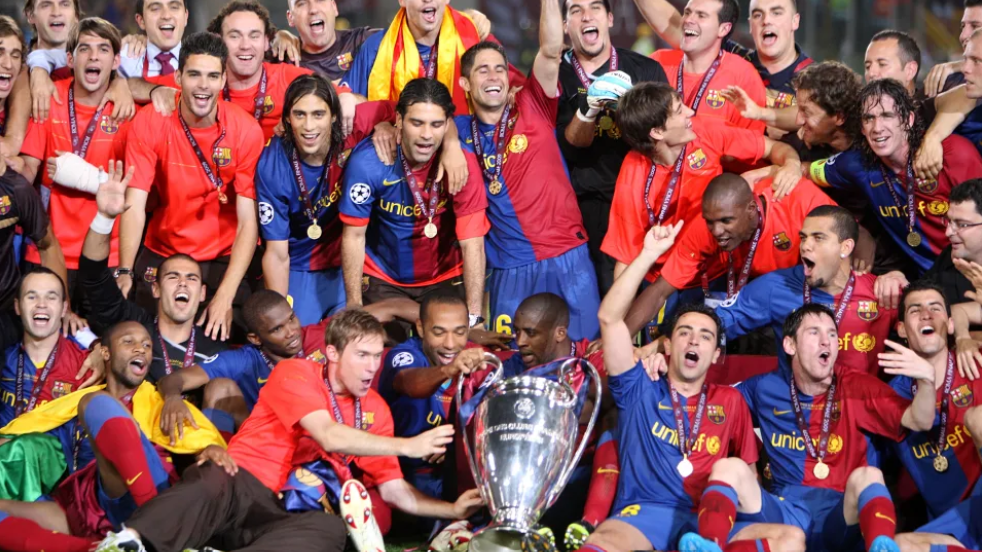
Tiki-Taka, a football tactic centered around short, precise passes, constant player movement, and ball retention, has been one of the most impactful tactical innovations in the sport’s history. This style of play, synonymous with dominance and control, was famously described by Spanish broadcaster Andrés Montes as “almost hypnotic” due to its intricate passing sequences.
More than just a strategy, Tiki-Taka is a philosophy that shows fans and enthusiasts how the game could be played at the highest level. For many people, Tiki-Taka began with the Dutch concept of Total Football, a system developed by Rinus Michels and executed by Johan Cruyff in the last century.
Cruyff, in particular, brought positional play, or Juego de Posición in Spanish, to FC Barcelona. Later, this system evolved under managers like Frank Rijkaard and, most recently and famously, Pep Guardiola. In the late 2000s, FC Barcelona and the Spanish national team, or La Roja, had perfected the Spanish Tiki-Taka, turning this strategy into an unstoppable way that achieved great success in national and international football.
So, come with me, and I’ll show you the entire history of this amazing strategy! This article will explore the history, evolution, and the legacy of Tiki-Taka, showing for you, a fan of football and FC Barcelona, key matches, managers, and players that were marked in the history of this eccentric style.
Table of Contents
- What is Tiki Taka? History, Evolution and Legacy of the Style
- What Is Tiki-Taka?
- Origins of Tiki-Taka: Influences of Total Football
- The Seeds of a Revolution (2003 – 2008)
- Pep Guardiola and Golden Era of Tiki-Taka (2008 – 2012)
- Spain’s Tiki-Taka Success (2008 – 2012)
- Decline and Evolution of Tiki-Taka (2013 – 2015)
- Future of Tiki-Taka: New Evolution or Extinction?
- Legacy of Tiki-Taka
- Create Your Own Philosophy with FootballTeam
What Is Tiki-Taka?
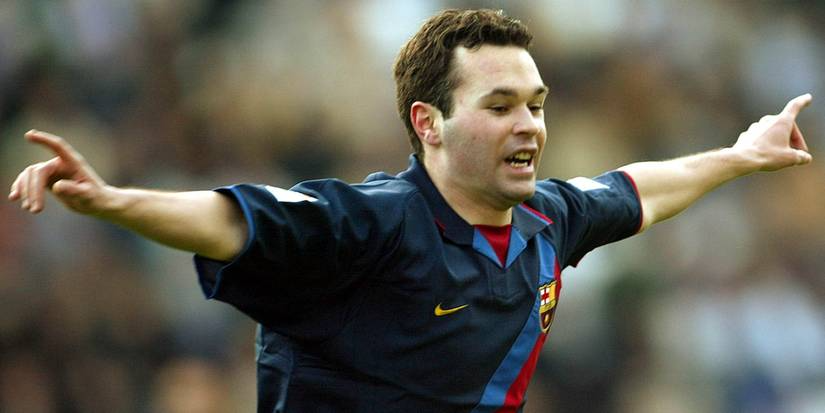
Tiki-Taka is a football philosophy focused on ball possession, short passing, and constant player movement to control the game. It is different from traditional attacking styles that focus on direct play with wings and midfielders or counter-attacking. This strategy prioritizes ball retention, positional awareness, and quick passes to break defenses well-posed on the pitch.
This strategy needs the best of each player, and they need to think multiple steps ahead, ensuring that the ball is always circulating. Tiki-Taka wasn’t only a football strategy – it was an art in the form of football, using all the intelligence, patience and technique of its players.
The phrase Tiki-Taka was first used by Spanish commentator Andrés Montes during the campaign of 2006 FIFA World Cup, when the Spanish national team reached the round of 16 and lost the game to the French national team by 3-1.
Montes used the term to describe what he saw on the field, with the passing sequences, like a melody in music – “Tiki-Taka, Tiki-Taka”. The phrase showed the essence of Spanish football: short and elegant passes and movements that never allowed the opponent to touch the ball.
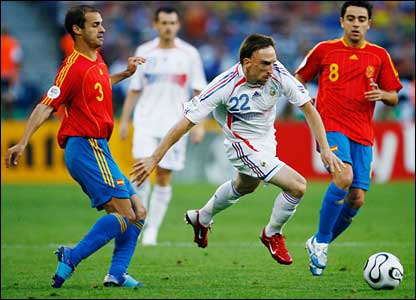
The words of Andrés Montes gave a name to a style that would later dominate world football, both FC Barcelona and Spanish national team. The impact of Tiki-Taka in modern football was huge, particularly with FC Barcelona and the Spanish national team. Under Pep Guardiola, Barcelona perfected the system and became an extraordinary force in Spain and European football.
Counting Frank Rijkaard and Pep Guardiola, FC Barcelona won five La Liga titles, two Copa del Rey trophies and three UEFA Champions League. Meanwhile, two Spanish coaches with the Spanish national team, under Luis Aragonés and Vicente del Bosque, used Tiki-Taka to Spain’s success to dominate international football, winning UEFA Euro 2008, the 2010 FIFA World Cup and UEFA Euro 2012 in a historic three titles in a row of FIFA and UEFA competitions.
Origins of Tiki-Taka: Influences of Total Football
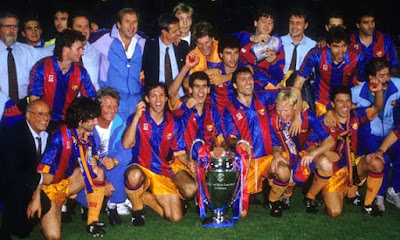
Tiki-Taka had its roots with the Total Football, the revolutionary system developed by Rinus Michels with the Dutch national team and years later, perfected with Johan Cruyff, former Dutch player and manager, during his time at Ajax in the early 1970s.
Total Football focused on fluid positional changes of players, high pressing and superiority over the opponents in spaces on the pitch. Cruyff arrived in FC Barcelona as a player in 1973 until 1978, and as FC Barcelona manager, Cruyff moved to the Spanish team in 1988 until 1996. As manager, Cruyff introduced the principles into the DNA of the club.
His “Dream Team”, the nickname of FC Barcelona during Cruyff’s tenure, had a style of play similar to the Rinus Michels, with ball possession and high pressing, preparing the ground for what would later become the known Tiki-Taka in Spain’s football.
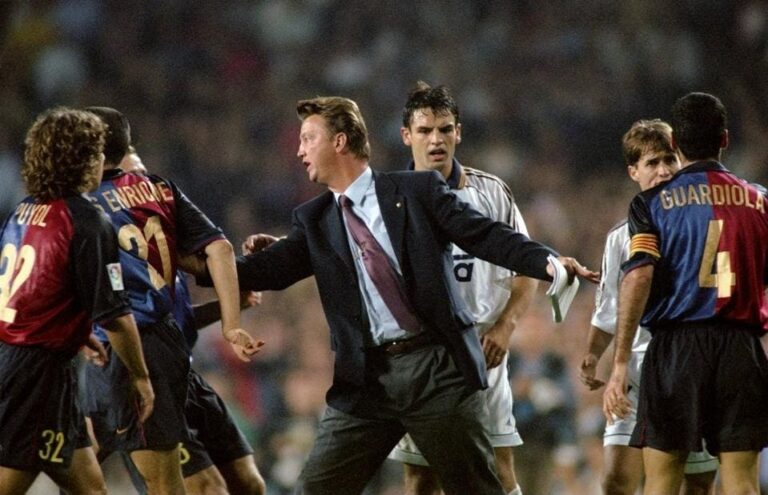
In 1997, Louis van Gaal was appointed as FC Barcelona team manager and tried to keep the legacy that Cruyff left in Spain. Van Gaal is another Dutch manager who was influenced by the Dutch footballing philosophy.
The coach focused on developing young players from the Youth Academy, known as La Masia. This was important since it was with Van Gaal that great names in Spanish football emerged to the Barcelona first team and would become important for Tiki-Taka.
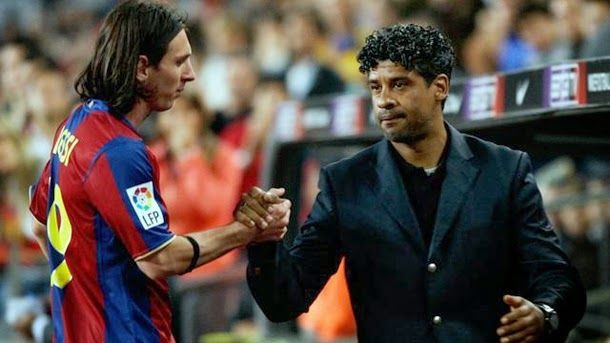
Positional Play, or Juego de Posición, was a crucial element in the development of Tiki-Taka. This tactic, which dictated the positions of FC Barcelona players on the pitch based on the ball’s location, precise passing, and teammate movements, was integral to the team’s success.
This strategy focused on maintaining ball possession, creating space and numerical advantages, and controlling the midfield, allowing the team to play a beautiful game. Under Frank Rijkaard and later Pep Guardiola, this philosophy became a core part of Barcelona’s identity and paved the way for both the club and the Spanish national team to achieve significant success on the world stage.
The Seeds of a Revolution (2003 – 2008)
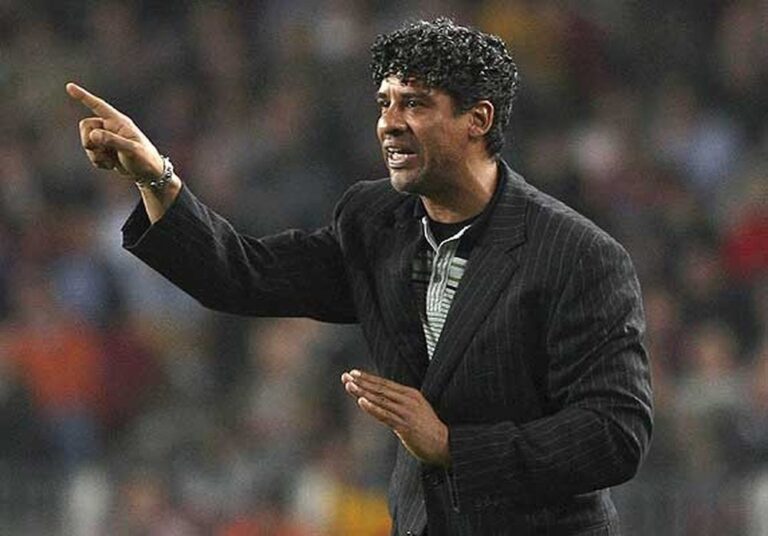
When Frank Rijkaard was appointed as FC Barcelona manager in 2003, the club was in a period of transition. The former Dutch football player had new plans for the club, and began to use a new, more dynamic, playing style. The coach would like to implement a more agile football style for the club and compete with European elite teams.
Rijkaard focused on ball retention, quick passing, and controlling the ball with his players while keeping the team always on the attack side. The manager had something in mind: He had to use the La Masia Youth Academy and find new international talents to improve FC Barcelona’s squad.
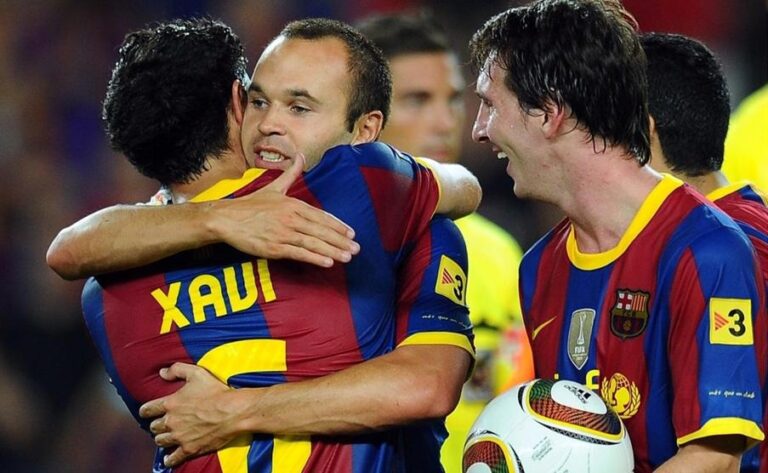
Between 2003 and 2008, some of Barcelona’s most iconic players rose to prominence. Xavi and Iniesta became the engineers of the midfield, dictating the game, delivering precise passes for their teammates, and breaking down well-posed defenses with their vision and intelligence.
Alongside them, another amazing player arrived, Ronaldinho, or Ronaldinho Gaúcho, for Brazilians, adding the creativity and individual talent that FC Barcelona needed to make the style functional and beautiful.
The team had early success with Rijkaard, and was paving the way for Tiki-Taka style. In the 2004/05 La Liga season, the team won the title, finishing four points ahead of its biggest rival, Real Madrid CF. However, in the 2005/06 UEFA Champions League season, under Rijkaard, FC Barcelona won their first UCL title. In the final, the club faced Arsenal, an English team, and defeated the club by 2-1.
Pep Guardiola and Golden Era of Tiki-Taka (2008 – 2012)
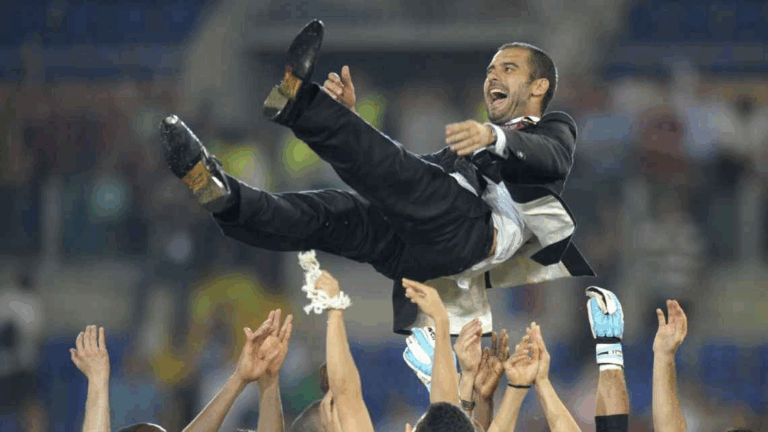
Pep Guardiola, appointed FC Barcelona manager in 2008, sought perfection through ball possession. His philosophy, emphasizing ball retention, short passes, and positional awareness, became known as Tiki-Taka, a term Guardiola disliked.
Guardiola expected his players to maintain constant movement on the pitch, create triangle plays, and touch the ball with precision. Guardiola demanded that his players needed to be able to read the game and create passing options at all times.
His squad was formed by extraordinary players, such as Lionel Messi, Andrés Iniesta, Xavi Hernández and Sergio Busquets that were the main players of the team, and each player was crucial to the Tiki-Taka style.
Messi, often played as a false nine, became the key player of Barcelona’s attack, while Xavi and Iniesta controlled the midfield with their vision and passing. Sergio Busquets, was the midfield sheriff, breaking opposition attacks and ensuring Barcelona maintained ball possession.

FC Barcelona, under the leadership of Guardiola, undeniably dominated the football scene. The team secured two UEFA Champions League titles, in the 2008/09 and 2010/11 seasons, both times defeating the formidable Manchester United from the Premier League in the finals.
In the first final, Barcelona won 2-0, with the goals being scored by Samuel Eto’o and Messi. The second final, again against United, two years later, was won again by the Catalan club. FC Barcelona won 3-1, with goals from Pedro, Messi and David Villa. Wayne Rooney scored for the Red Devils, but it wasn’t enough, making Barcelona win the fourth UCL.
FC Barcelona won their last UEFA Champions League title in the 2014/15 season, under Luis Enrique, the current manager of Paris Saint-Germain.
Spain’s Tiki-Taka Success (2008 – 2012)
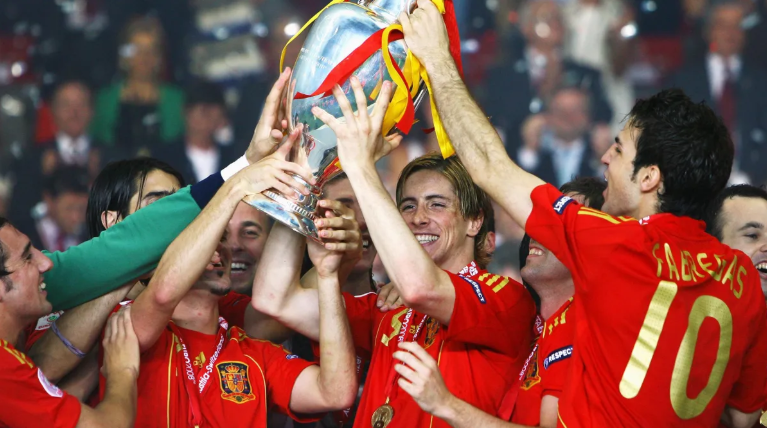
The success of Spain’s national team, known as La Roja, in the late 2000s and early 2010s is due to the Tiki-Taka playing style, which was mirrored in the philosophy used by Barcelona. Spain perfected the strategy, using ball possession, short passing and positional play, everything that FC Barcelona did, but with more perfection. Xavi, Iniesta, David Silva and Cesc Fabregas formed the heart of the system.
Spain’s national football team, under the leadership of Vicente Del Bosque, achieved unprecedented success by adopting the Tiki-Taka strategy. This led them to win three major international titles consecutively: UEFA Euro 2008, the 2010 FIFA World Cup, and UEFA Euro 2012, a feat unmatched by any other national team in history.
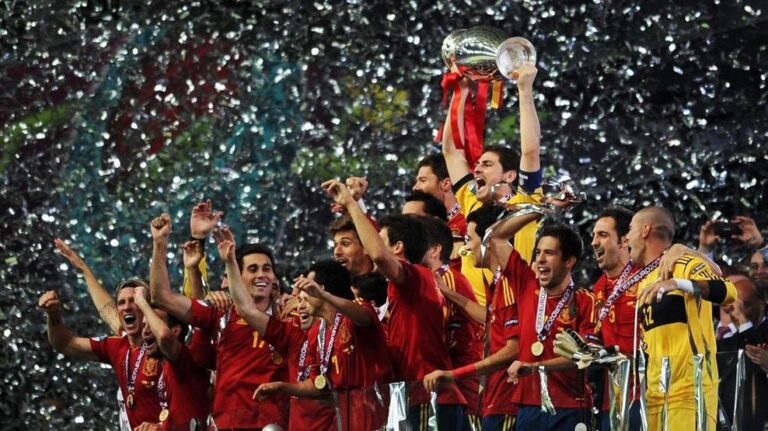
Spain’s national football team won their second UEFA Euro title in 2008, defeating Germany 1-0 in the final with a goal by Fernando Torres. This victory marked their first Euro title since 1964.
Spain’s national football team arguably reached the pinnacle of Tiki-Taka in 2010, when they secured their first-ever FIFA World Cup title by defeating the Netherlands. The winning goal, scored by Andrés Iniesta during extra time, came close to the end of the match.
And to close with a golden key this period, Spain won UEFA Euro 2012, this time, against Italy. Spain won the game by 4-0 and the goals were scored by David Silva, Jordi Alba, Fernando Torres and Juan Mata. This title was their third in its history.
Last year, in the UEFA Euro 2024, Spain once again won the UEFA Euro, this time against England. It was their fourth title and the goals were scored by Nico Williams and Mikel Oyarzabal, England scored with Cole Palmer, but this goal wasn’t enough.
Decline and Evolution of Tiki-Taka (2013 – 2015)
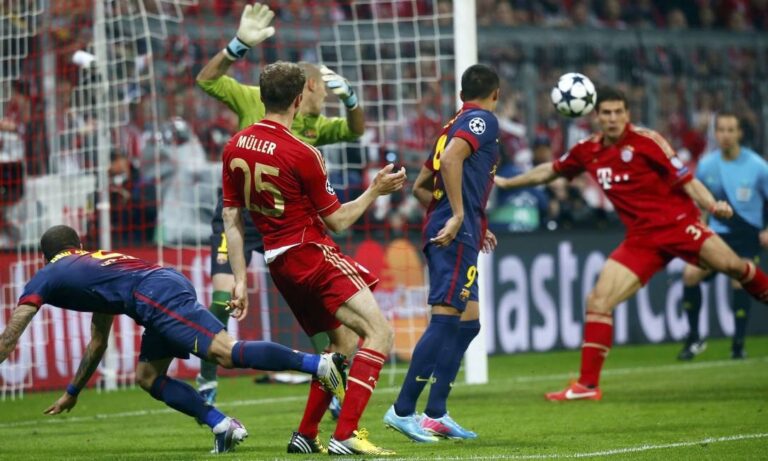
FC Barcelona and Spain’s reign in international and club football started to falter as other teams learned to counter Tiki-Taka. Bayern Munich’s 4-0 victory over Barcelona in the 2013 UEFA Champions League semi-finals was a prime example. Under Jupp Heynckes, Bayern exploited Barcelona’s vulnerabilities with a high-pressing style that disrupted their Tiki-Taka.
Spain’s early exit in the group stages of the 2014 FIFA World Cup further highlighted Tiki-Taka’s declining effectiveness. These developments raised the question: Did Tiki-Taka need to be reinvented to remain effective?
In response to these challenges, Luis Enrique, who was appointed in 2014 as FC Barcelona’s manager, made some adjustments to the team’s style of play. While the manager kept elements of Tiki-Taka, Luis Enrique incorporated more direct attacking play, focusing on quick transitions and vertical movement.
His change in tactics, which included counter-attacking football and ball possession with his players, was evident when FC Barcelona won their fifth UEFA Champions League in 2015. This evolution marked a new beginning for Tiki-Taka, since Barcelona and Spain adopted a hybrid tactical system, blending elements of Tiki-Taka and new strategies developed to adapt FC Barcelona with modern football.
Future of Tiki-Taka: New Evolution or Extinction?
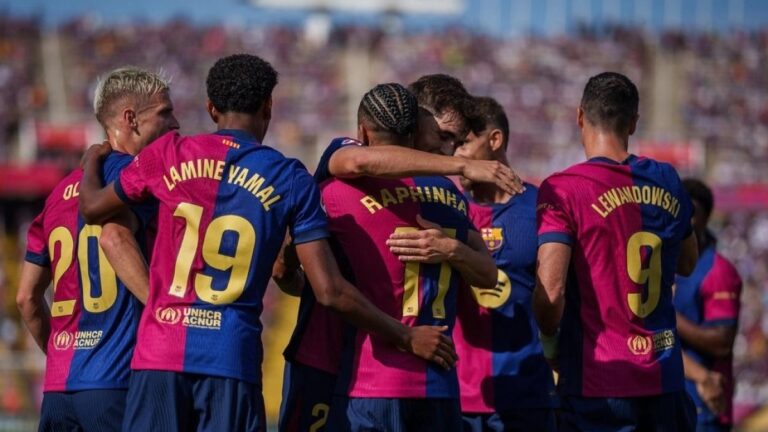
Modern football continues to evolve every day, and the pure form of Tiki-Taka faced challenges in its journey. The increasing focus on pressing, counter-attacking, and tactical flexibility has changed how football is played.
Nowadays, teams need to be more versatile, adopting their tactics based on the adversary and the specific demands of each game. Some teams have shown that they can combat the strategies of the Tiki-Taka, making the traditional Tiki-Taka style more difficult to use.
The intensity of modern football has forced managers around the world to seek new dynamics and styles of play, which have challenged Tiki-Taka’s place at the top of football.
Despite these challenges, data analysis and artificial intelligence emerged as tools that could help improve tactics for the future. In modern football, the technology enables coaches to study a lot of contents to optimize their tactics, improving Tiki-Taka.
With this new era of tools, coaches can better analyze their adversaries and strategies, being able to do adjustments in real time. This could allow Tiki-taka to remain relevant, since football has become faster and with a huge tactical variety.
Legacy of Tiki-Taka
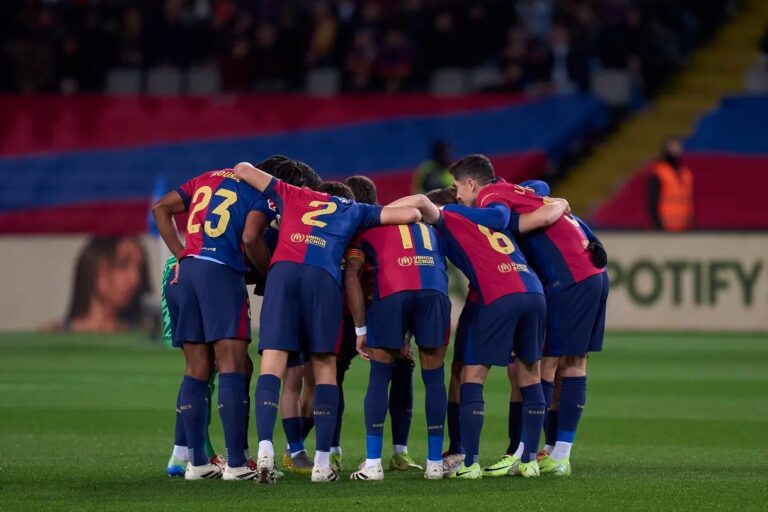
Tiki-Taka has changed football forever, revolutionizing the way teams around the world play football. While this system doesn’t dominate anymore in its natural form, its influence still shapes how the game is played.
The legacy of Tiki-Taka continues to influence coaches worldwide, whether it’s Pep Guardiola, who currently manages Manchester City, or young coaches emerging in world football. The evolution of this philosophy of play shows that it is always possible to adapt Tiki-Taka to new styles.
With football evolving, all the tactics that have already been used to generate success for the teams that used Tiki-Taka, continuing to be important for the creation of new techniques that great teams will use to succeed and win titles. And guaranteeing, forever, its place in football’s history.
Create Your Own Philosophy with FootballTeam

If you’ve made it this far, chances are you’re a big football fan, right?
If you’re passionate about football and want to be the best player ever, I have good news: FootballTeam is the perfect game for you!
This game is your gateway to show off your football knowledge while building your dream team or stadium. Challenge friends and players globally in an immersive football experience like no other!
FootballTeam is available on desktop and mobile devices, ensuring a seamless experience wherever you are. Sign up now and play for free!